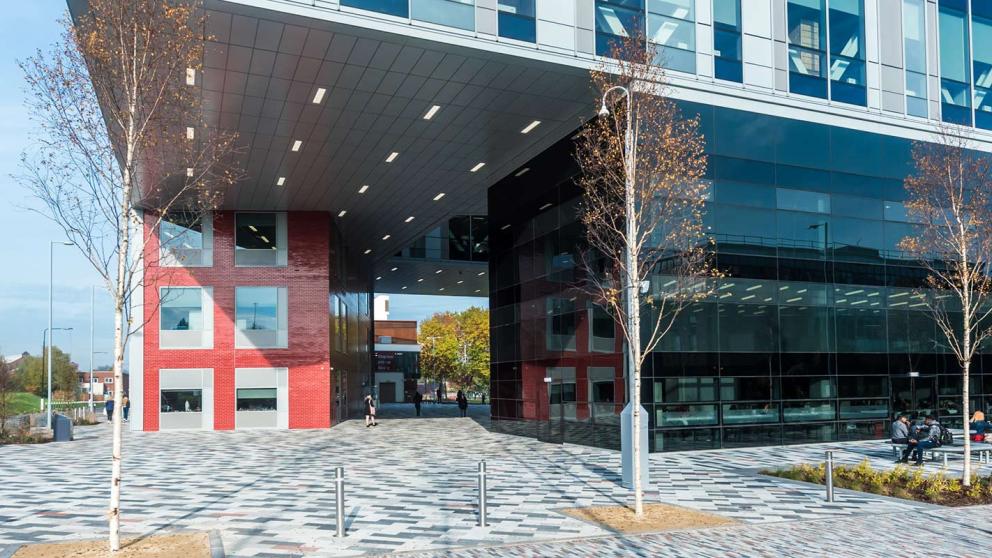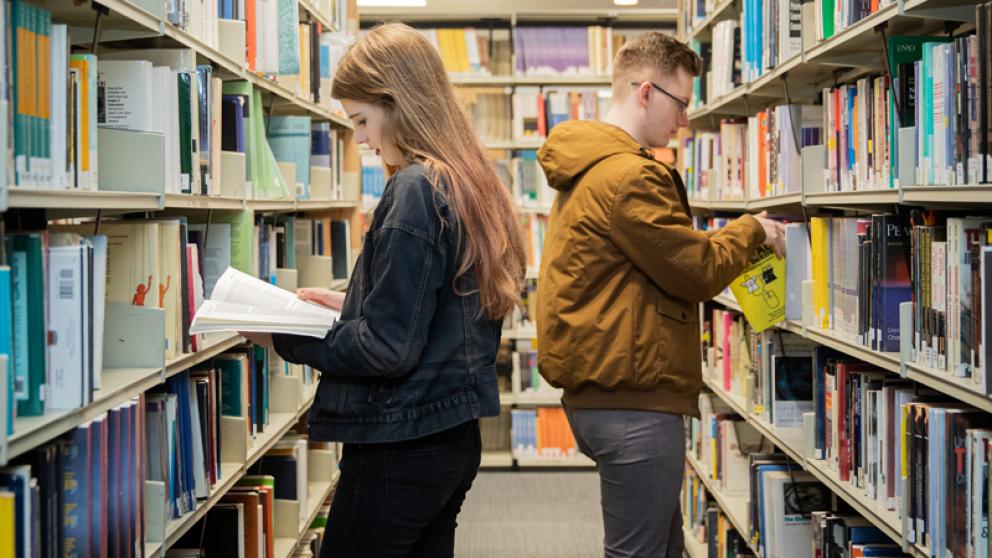ENGLISH, DRAMA AND CREATIVE WRITING courses at Salford
Are you passionate about literature, creative writing or exploring the origins of language? Maybe you see your future in the world of drama and performance? Perhaps you are thinking about a teaching career or work in the civic sector? At the University of Salford, our English courses enable you to explore and nurture diverse interests.
Wherever your interests lie, an English degree from the University of Salford has you covered.
Ready to write your own story?
When you study an English course with us, you will be taught by expert tutors with a vast array of experience: our English Literature staff are passionate about both the historical and contemporary landscapes of literature; our Creative Writing tutors are publishing professionals; our Language academics apply their knowledge to sectors as diverse as the media and health; and our Drama practitioners are working playwrights and dramaturgs.
We offer undergraduate degrees and master's programmes.

Undergraduate courses
Spend three years exploring the area of English which interests you most, or craft your own route on our English Multidiscipline course by combining two subjects from English Literature, English Language, Creative Writing, and Drama.
English Language
English Literature
Creative Writing
English and Film
English Multidiscipline
BA (Hons) English Multidiscipline is a degree that is unique to the University of Salford: designed to meet the professional and social challenges of today, this innovative programme allows you to craft your own route through English by making possible the combined study of two subjects from English Literature, English Language, Creative Writing, and Drama.

Postgraduate Courses
Build on your undergraduate and work experiences so far to further develop your skills and job prospects in a specific area.
Are you an experienced creative writer looking for new ways to hone their craft? Do you want to establish a professional career as a novelist, publisher or journalist? Check out our forward-thinking MA in Creative Writing: Innovation and Experiment.
If you live for literature and culture and want to deepen your understanding of the complex and often disturbing forces that shape our world, our MA Literature and Culture is the course for you.
Frequently asked questions
What is the English, Creative Writing, and Drama scene like in Greater Manchester?
We are proud that Greater Manchester's literary and theatrical history is etched on the world map. Greater Manchester has produced iconic writers such as Thomas De Quincey, Howard Jacobson, Elizabeth Gaskell, Anthony Burgess, Jeanette Winterson, and Lemn Sissay.
Regular live events, festivals, and open mic nights cover all genres and forms, and there are a variety of bookshops, libraries, and archives to be explored.
Greater Manchester is also a thriving hub of theatre and performance: from large-scale, globally-touring productions to fringe theatre and experimental work, there are many opportunities to experience and share work.
Do you have any social channels I can follow you on?
The English department has Instagram, X, and Facebook accounts that you can follow: here, you can learn about the activities of our staff and students.
You can also explore the department’s research on our blog and you can read student work on Writing at Salford—a website that showcases the very best work produced by students in the English Department.
How can I best prepare for my studies at the University of Salford?
To prepare for your studies of English at Salford, you should focus on engaging with media and culture: for instance, if you are planning to explore English Literature, you should continue to read with a critical mindset, exploring the texts that interest you; if you are going to study English Language, make sure to observe the language that surrounds you, paying attention to how language is used in the world; if you are studying Creative Writing, we recommend that you keep working on your creative practice, developing a readymade store of work to draw on during your classes; or, if you are interested in studying Drama, you should attend as many plays as you can, whether in person or online.
What career pathways have Salford graduates followed?
By studying English, you develop a range of key skills relating to critical thinking, communication, research, and creative practice, each of which are vital within the twenty-first century. Collectively, these skills provide the groundwork for a large number of careers, including writing, public relations, teaching, journalism, and academia—to name just a few.
To support your development of key skills, our programmes include a work placement opportunity, meaning that you have access to work experience while you study with us.
How are students supported as they progress from college level study to university level?
At Salford, we understand that the transition from studying at college to studying at university can be confronting and challenging. However, when you join us, you will become a part of an inclusive community which works to support you both personally and academically: for instance, every student within English has an Academic Tutor who will help you to achieve your goals; moreover, our Disability Inclusion Service can create a Reasonable Adjustment Plan (RAP) for you if you need additional adjustments.
We also offer support with academic writing, from breaking down an assignment brief to critical analysis. For more information, you can take a look at the Academic Writing webpage.
EXPLORE OUR FACILITIES
To excel in your studies of English, Drama and Creative Writing, you’ll need access to many resources and outstanding facilities.
Our £55 million, sustainable and accessible New Adelphi building is a north-west hot-spot for talent, academia, and creativity which is supported by a thriving media industry in Greater Manchester.
With a state-of-the-art campus at MediaCity, we encourage creative collaboration between students, specialist technicians, academics, and the media production industry. Located alongside the BBC, ITV and over 250 digital and media businesses our studios and specialist spaces are equipped with industry standard hardware and software.
From a wide range of books and journals to a 350-seat theatre, we have everything you need to that allow you to investigate and develop your ideas.
You’ll also be able to access a wide range of books and journals at the libraries on campus, as well as development and learning sessions so you can brush up on your IT and research skills.
WHY STUDY AT SALFORD?
You'll join a creative and supportive English community where our focus is to ensure that you have the skills you need to pursue your dreams, and we encourage our students, past and present, to collaborate with each other and achieve great things.
All our courses include a work placement module and the opportunity to study abroad. What’s more, our graduates have secured placements and work with literary agencies like Conville and Walsh, The Telegraph newspaper, The Royal Exchange Theatre and more.
Our graduates and alumni have secured creative placements and jobs with industry leaders such as The Co-Op, the Home Office, the Telegraph and more.



